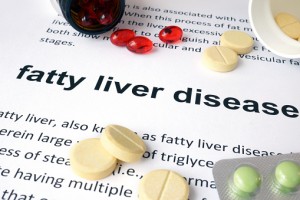Two ways to lower your risk of metabolic syndrome
Two ways to lower your risk of metabolic syndrome
By Eileen Coale
Many people have never heard of metabolic syndrome, also known as Syndrome X, but it's a big health problem … literally! Metabolic syndrome is a cluster of health conditions associated with obesity. These conditions include high levels of belly fat, high blood pressure, elevated blood sugar levels, and unhealthy cholesterol profiles. People with metabolic syndrome have a higher risk of diabetes, heart disease, and some cancers. The problem affects one out of every five Americans. Now, two different studies show that certain nutrients may help slash the risk of metabolic syndrome.
The first study was published in the May 2009 issue of the Journal of Nutrition. Researchers found that people who had a high intake of carotene-rich foods had a 58 percent lower incidence of metabolic syndrome. Carotenes are naturally occurring nutrients found in brightly colored vegetables and fruits. Of six carotenes commonly found in the diet, beta-carotene and lycopene had the most beneficial effect. People who reported eating the most of these 2 carotenes had the lowest risk of metabolic syndrome. Beta-carotene is found in large amounts in sweet potatoes and carrots. Lycopene is found in tomatoes, especially in cooked tomatoes. It's also found in pink grapefruit and watermelon. Kale is a surprisingly good source of beta carotene, as well as two other important carotenes, lutein and zeaxanthin.
Another study published in Diabetes Care revealed a link between Vitamin D deficiency and metabolic syndrome. The study involved 3262 Chinese people between the ages of 50 and 70. Nearly everyone, fully 94 percent of study participants, was Vitamin D deficient. Almost half (42%) of those with vitamin D deficiency also had metabolic syndrome, leading the study authors to conclude that vitamin D deficiency increased the risk of metabolic syndrome in this group. In other studies, low Vitamin D levels also have been associated with insulin resistance. There's a growing consensus that the current recommended daily allowance of Vitamin D (400 IU) is set too low for good health for most people.
Although some foods are rich in Vitamin D – such as eggs, wild salmon, and cod – it's difficult to get enough Vitamin D from food alone. The best source of Vitamin D is the midday sunlight, but it's not a viable option for everyone. For those who live in the north, seldom spend time outdoors, burn easily, or have concerns about skin cancer risk, Vitamin D supplements may be the best choice.
References:
Journal of Nutrition, "Dietary Carotenoid Intake is Associated WIth Lower Prevalence of Metabolic Syndrome in Middle-Aged and Elderly Men," Volume 139, Number 5, May 2009. Authors: I. Sluijs, J.W.J. Beulens, D.E. Grobbee,Y.T. van der Schouw
Diabetes Care, "Plasma 25-hydroxyvitamin D Concentration and Metabolic Syndrome Among Middle-Aged and Elderly Chinese."
Authors: L. Lu, A. Pan, F.B. Hu, O.H. Franco, H. Li, X. Li, X. Yang, Y. Chen, Z. Yu, X. Lin
For full issue, visit http://www.appleboost.com/pages.php?pID=32.
-
Emotional Eating Turns Food Into A Drug
My Own Personal Hell “There’s talk and laughter all aro
-
Helping the Body Shed Weight Naturally
In a recent on line look up lose weight
-
Acai Berry And Your Weight Loss Program
Acai Berry Does Help You Lose Weight Quickly Does Acai Berry really
-
Good Advice For Those That Want To Slim Down
Losing weight is one of the main goals of many people. No matter
-
Could This Drug-Free Approach Help Relieve Your Arthritis Pain?
Approximately 50 million American adults report being told by t
-
This Towards the south Beach destination Eating habits
It’s tough to get the stamina to stay working toward suitable he
- DON'T MISS
- You Cant Lose Weight On A Diet
- Personal Training Helps Overweight Children Get Healthy
- British Celebs Stay Slim By Avoiding Alcohol
- 5 Habits That Will Lead To Healthy, Sustainable Weight Loss
- What is Gut Bacteria and Will it Make You Fat?
- Child Health, Obesity and The Puppy Fat Myth
- Weight Loss Programs – What Is The Best Programs For Losing Weight
- False-Starts
- What Makes Cho Yung Tea The Best Green Tea?
- Losing Weight Without a Weight Loss Program




